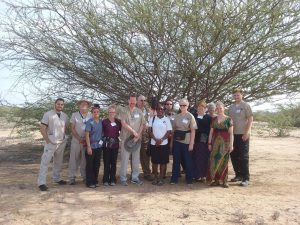Serving God’s people in the desert of Turkana, Kenya.
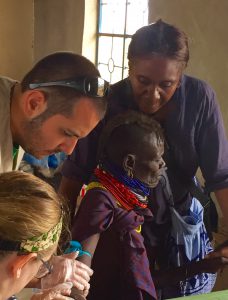
Late at night on Saturday, June 18, a twelve member Mercy Medical Team landed in Nairobi, Kenya. Team members came from all over the United States, and we had just met in person for the first time. Working with our brothers and sisters in the Evangelical Lutheran Church in Kenya (ELCK), we planned to provide primary clinical care in the remote Turkana region of Northwest Kenya.
Upon arrival at the airport, we found out that the Kenyan government, just the day before, had issued an order to stop all foreign health care workers from operating within the country. We went to bed at a local guesthouse not knowing if we would be able to work, but trusting that God had a plan for us.
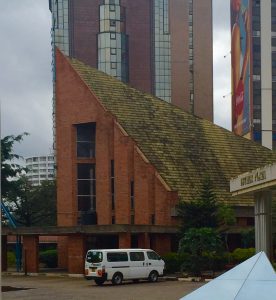
On Sunday morning, we were blessed to worship at the Uhuru Highway Lutheran Church in Nairobi. Our team chaplain, Rev. Robert Pase, from Midland, TX, gave the sermon and distributed Holy Communion. It was wonderful to worship with our Lutheran brothers and sisters knowing that, even though we live thousands of miles apart, we share the same faith and hope in Jesus Christ.
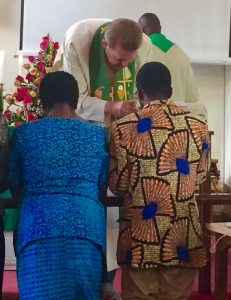
One church member approached Shara Cunningham and Sarah Kanoy, who serve as LCMS Missionaries in East Africa. (Without them, our trips would not be possible. Be sure to visit Shara’s website and Sarah’s website to learn more about the work they do). The member introduced himself as a doctor at a local hospital. We were able to talk to him about the restrictions, and he contacted many officials.
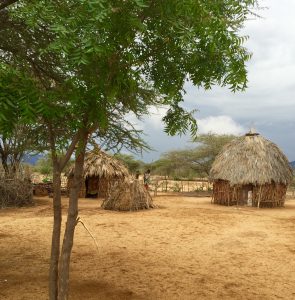
The Turkana region of Kenya is a very dry desert region (think Arizona in the summertime.) The area is remote, and for many years the Turkana have been marginalized in receiving government resources. On our flight from Nairobi to Lodwar (look at the small size of that airplane! Propellers!), Shara was seated next to the administrator of the hospital in Turkana county–right where we planned to work!
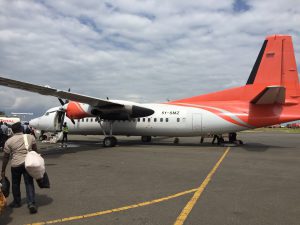
They were able to spend the flight talking about the clinics and how we could proceed.
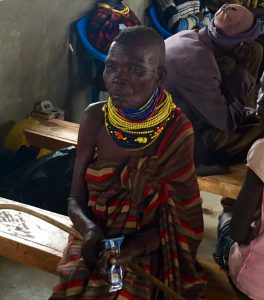
The Turkana people are beautiful, dignified, and kind. Many do not speak English or Swahili, but only the local tribal language. We were thankful for our translators! There is not a Lutheran church in Turkana; the ELCK hopes to build a mission outpost here soon.
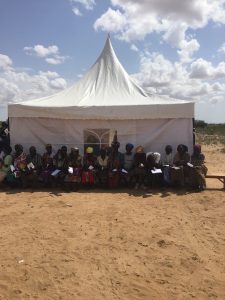
Since there is not a Lutheran church, the local Baptist pastor was kind enough to offer his church for our clinic. To accommodate the hundreds of patients that were expected, tents were set up for registration, triage, and lab work. With permission in hand from the government, we were ready to begin.
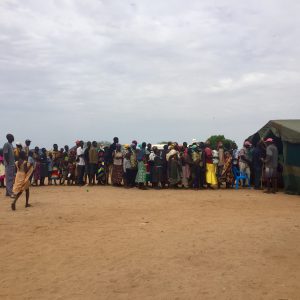
Each day, hundreds of people were lined up waiting to receive healthcare. Most had walked many kilometers in the heat to get there. One man was not sure how far he had come—only that he walked for two weeks to reach his family in the area and to receive healthcare from our clinic. There was a baby that was just weeks old, and a lady who thought she was over 100 years old.
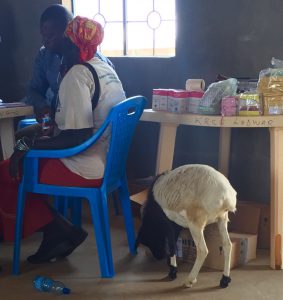
I am fairly certain that this is the first time that we had a sheep in the pharmacy. This is Noma, who followed her owner faithfully from place to place, waiting quietly for her to be finished.
Sometimes, our donors don’t understand why we ask for vitamins in capsule or tablet form, rather than the gummy kind. Here’s why we do that.
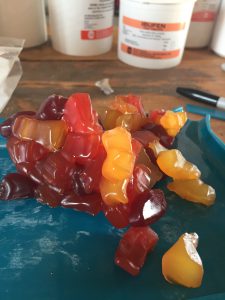
Each day, local families prepared lunch for the team over an open fire. Here’s our goat and ugali (a corn flour paste) being prepared.
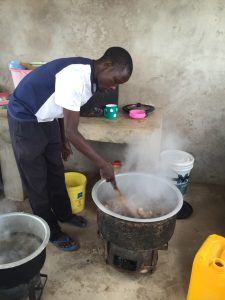
This desert region receives only about seven inches of rain each year. It was unusual, but very welcome, to have rain for two days during the week. When I asked one local man when their rainy season is, he smiled and said, “Today.” The rain brought cooling breezes and relief from the heat.
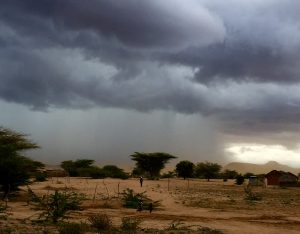
The team heard about some people living in the desert who needed healthcare but couldn’t walk to the clinic. We made house calls, with most of the village children coming along, and were able to pray with those who were sick and provide medical care as needed.
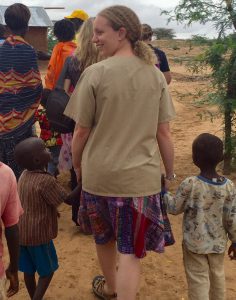
The Turkana children were fascinated with our cell phones, and asked to have their pictures taken. It made them giggle to see themselves. These two young ladies first wanted to have their picture taken, and then asked if they could take a picture themselves.
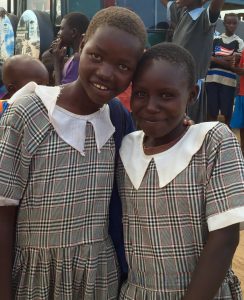
Here’s the photo of Dr. Jeff that they took.
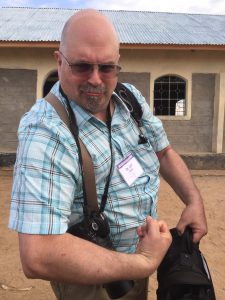
The team was able to visit the location for the future Lutheran mission outpost. We took a picture, and prayed together at the site.
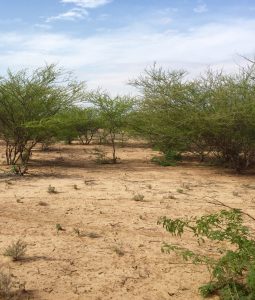
By the end of the week, the team had treated 1861 patients. There were many positive malaria tests, infections, and other diseases. Some of the village children were diagnosed with the mumps. Ten people were referred to the nearest hospital for further treatment. The team was tired from all of the hard work, but thankful for the chance to share the Gospel with so many. Anyone is welcome at our clinics, and we treated Christians, Muslims, and followers of traditional religions. Please keep these beautiful people in your prayers.
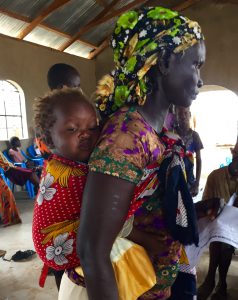
After all of the hard work, most of the team stayed on for a safari at Amboseli National Park. It was amazing to see God’s creatures in their natural setting.
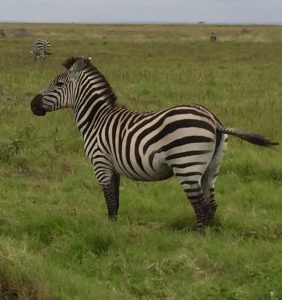
Here’s a shot of the rarely seen in captivity species “American Tourist.”
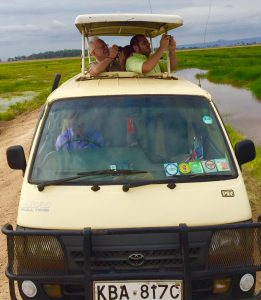
Before it was time to head to the airport the next day, we visited a giraffe refuge in Kenya. One team member—ahem—really, really likes giraffes.
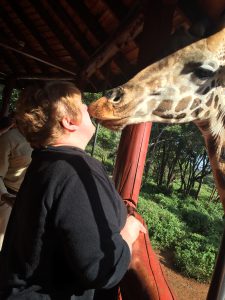
I thank God for the opportunity to serve the Evangelical Lutheran Church in Kenya, and the people of Turkana. If you are interested in serving on a future Mercy Medical Team, visit www.lcms.org/mercyteams for more information. I’d love to talk to you about it.
